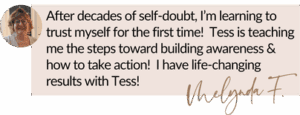There are times when speaking our minds means losing a friendship.
No one enjoys admitting that, but it’s part of real human experience. You may have been in a group where staying quiet seemed safer than risking the bond, even if what you witnessed, bullying, subtle injustices, or your own creative spark, mattered deeply.
Speaking up in these moments can feel like standing on a cliff’s edge: your integrity on one side, belonging on the other. Yet, the quiet ache of self-silencing often runs deeper than the pain of separation.
Sometimes we confuse silence with strength. We tell ourselves that it’s wiser to let things go, that peace matters more than truth. But every time you suppress your voice, a small part of you learns that authenticity is unsafe. Over time, that lesson shapes how you show up, not only in friendships, but in every part of life where your truth wants to be heard.
-
Notice when you feel torn between truth and belonging.
-
Ask yourself: which loss feels heavier—my voice, or this relationship?
Sometimes it feels like you cannot choose between yourself and the relationship – as if your identity hinges on the friendship. Yet, struggles with decision making can be reversed when we choose integrity over silence.

“A truly gifted coach, don’t hesitate to book with her!” — Claire S.
Table of Contents
The Relationship Between Self-Value and Connection

Healthy connection begins with how you see yourself.
When your sense of worth is woven too tightly into relationships, disagreement feels threatening.
“Healthy connection begins when you no longer trade your truth for belonging.”
If your identity depends on being liked, then voicing a different view risks everything. But here’s the paradox: the more you centre your own value, the more stable your friendships become.
Healthy connection requires two whole people, not one disappearing to keep the other comfortable. When you anchor your worth in self-respect rather than approval, you become less reactive and more grounded. Even if someone pulls away, you remain steady — because your sense of safety is no longer borrowed from others, it’s built within.
At the end of the day, the only person you must reconcile with is the face in the mirror, the self who walks beside you for a lifetime. Valuing your perspective builds resilience, even if a friendship is lost along the way.
Even after losing a friendship you can:
-
Strengthen the relationship with yourself before protecting external ones.
-
Anchor in self-respect before expecting respect from others.
When you value yourself & your opinions, speaking up for your beliefs can make you stand a little taller…even if you’re doing it alone. When you would rather shrink your self-worth than lose a friendship, it’s still possible to change that relationship with yourself and increase your self-worth.
Why Friendship Loss Hurts So Much

Grief after friendship loss is real and healing is possible.
When you lose a friendship after speaking up, it’s natural to feel grief. Human beings are wired for tribe and connection; our ancient survival brain still believes isolation is dangerous. That old wiring makes rejection feel life-threatening, even though our modern reality is different.
“Rejection feels dangerous because your nervous system still thinks isolation means threat.”
The pain often surprises us because friendship loss rarely receives the same empathy as romantic heartbreak — yet it can be just as disorienting. It’s a rupture in shared history, trust, and familiarity. Recognising that your brain is simply trying to keep you safe helps you meet your feelings with compassion instead of shame.
The truth is: you can survive the loneliness, even thrive, without old friendships when you stand in your truth:
-
Notice when your fear is primal, not present-day.
- Remind yourself: belonging today comes from aligned community, not forced conformity.
→ Gift for You ←
7 Days of Regulation – A daily guide to calm your nervous system when relationships feel shaky.

Why It’s Worth Speaking Up

Your voice has power. Use it with compassion.
Remaining silent may feel like keeping the peace, but over time it erodes self-trust. Your inner critic may try to convince you that silence is maturity, but when you consistently withhold your voice to avoid conflict, you teach your inner world that your opinions are less important than keeping friends. That bargain may preserve surface harmony, but it quietly depletes you.
“Silence may keep the peace, but it costs your peace of mind.”
By contrast, voicing your truth may cost a fragile friendship but it affirms your integrity. Speaking up realigns you with yourself.
True belonging is never conditional on sameness; it allows difference without threat. That’s the kind of connection that nourishes instead of drains.
-
Silence protects comfort but sacrifices authenticity.
-
Truth risks discomfort but strengthens integrity.
Explore more: Accepting What Is
Reasons to Speak Up, Even if It Costs a Friendship

Healing begins where your younger self once felt unsafe to speak.
It may feel easier to stay quiet, but silence often breeds tension inside you. When you consistently avoid sharing your perspective, you teach yourself that keeping peace is more important than keeping integrity. That is how self-trust erodes.
“True belonging allows difference without fear; that’s where real intimacy lives.”
By contrast, voicing your truth helps you stand taller, even if it means losing a friendship along the way.
Five powerful reminders after losing a friendship:
-
Fragile friendships don’t last. The fear of abandonment or losing a friend can keep us silent. But if a bond requires constant silence to survive, it is not a true friendship at all.
-
Ask: Am I maintaining connection, or just avoiding conflict?
-
True belonging includes space for difference.
-
-
Your voice has value. Not every situation requires you to speak, but when something deeply matters, expressing it honours both you and the relationship.
-
Choose words that are constructive and kind.
-
Protect your energy by discerning when it’s worth sharing.
-
-
Silence isn’t kindness. Holding back can feel “nice,” but it’s actually misleading. If the other person never hears your real perspective, they never get to fully know you.
-
Silence may protect them from conflict, but it also withholds intimacy.
-
Long-term, this pattern breeds frustration and distance.
-
-
Seasons change. Sometimes we outgrow a circle or tribe. That isn’t failure, it’s evolution. Trying to stay where you no longer fit only creates inner strain.
-
Pay attention to the mismatch, not the guilt.
-
Trust that leaving an ill-fit makes room for new belonging.
-

True belonging is found where authenticity is welcomed.
-
A new tribe awaits. When you stay true to yourself, you discover resilience. There are always other people, other communities, who will welcome your real voice.
-
Keep engaging in what you love.
-
Openness to new connections is what draws the right people in.
-
Sometimes the fear of rejection is more powerful than wanting to build self-trust. But there are many ways to help you bridge the gap between → fear and resilience.
Practical Ways to Care for Yourself

Reflection is how healing becomes wisdom.
Losing a friendship still stings, even if you know it was the right choice. Healing requires gentleness with yourself.
“Healing begins when you speak kindly to the part of you that aches.”
The first step is to soften the voice inside that tells you you’ve failed. You didn’t fail, you told the truth, and truth sometimes clears space for growth.
-
Be compassionate. Speak kindly to the part of you that aches. Acknowledge you did nothing wrong by being real. Know that the world needs your voice & it is right & good to add it. If you were being true to yourself & had clean motives & they don’t like what you say, know you didn’t do anything wrong. Acknowledge you don’t have control over people’s responses, only your responses to them, that reframe is a Confidence Boost and can reform how you see your part.
-
Take action. Talk to the people who value you. Make a list of 3 things you love to do & then do one of them. Take a walk around the block. Fresh air and movement help us switch gears.
- Mind your thoughts. Guard against “forever” thinking. Find practices that calm your body and mind. Friendships end, but belonging can be rebuilt. Things won’t stay this way forever. There is a tribe out there waiting for you.
In the end, if your opinions cause you to lose some friends, it will be uncomfortable at first, but if you can’t speak your truth with your friends, what have you really lost?
I ask myself, what feels worse: being quiet to maintain the façade of belonging, or speaking up and preserving my self-trust and character?
FAQ: Losing a Friendship After Speaking Up
Q1: Why does losing a friendship feel so devastating?
Because our nervous system confuses social rejection with physical danger. It’s an old survival pattern.
Q2: How do I know if I should speak up or stay quiet?
Check your motives. If silence is self-betrayal, your truth needs to be voiced.
Q3: How do I rebuild after losing a close friend?
Start by nurturing yourself, then open slowly to new connections rooted in respect.
When You’re Tired of Staying Silent…
True resilience comes from voicing your truth and standing tall in it. If you feel stuck in self-doubt, or you’re grieving a lost friendship and unsure how to move forward, support can help you steady your ground.
